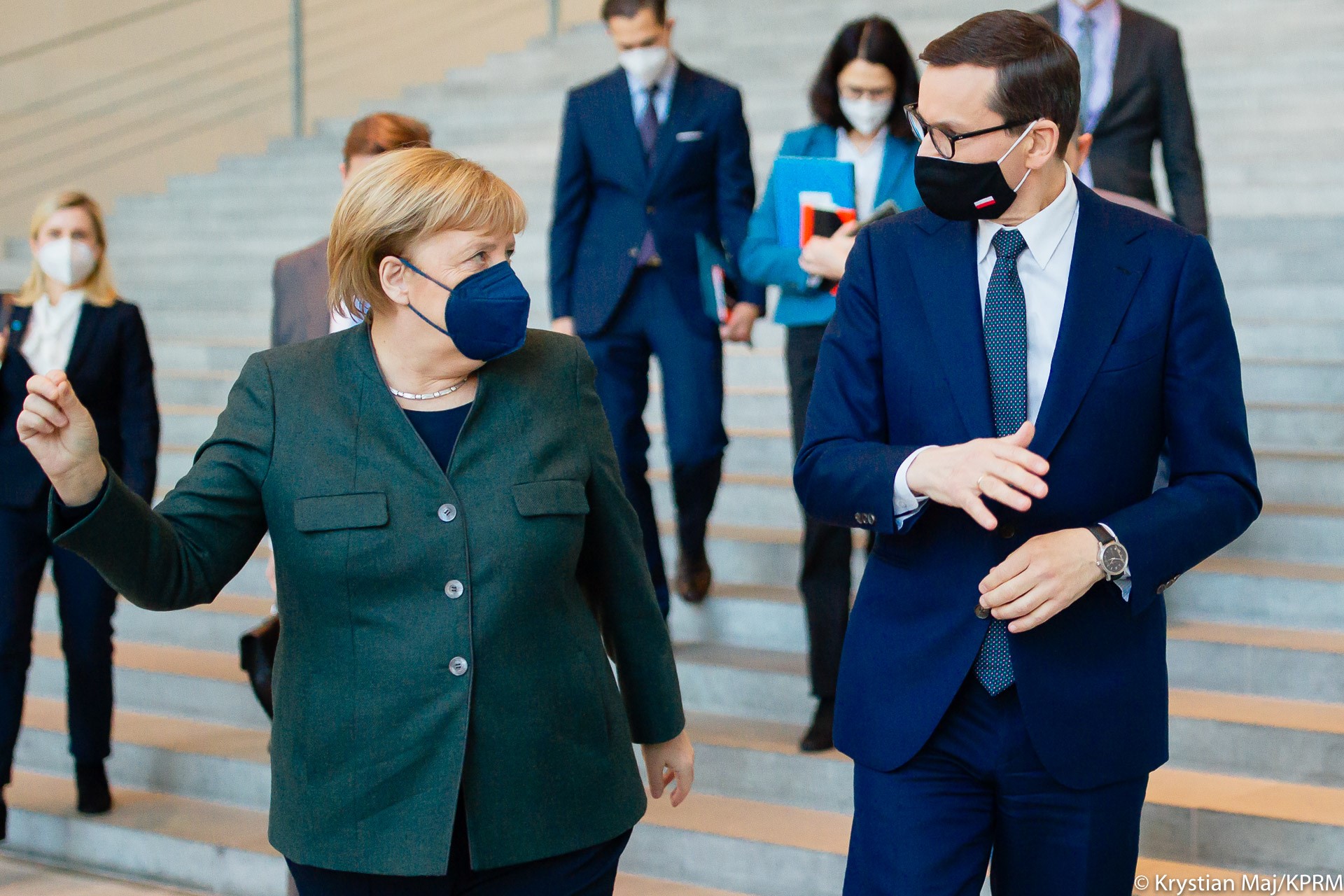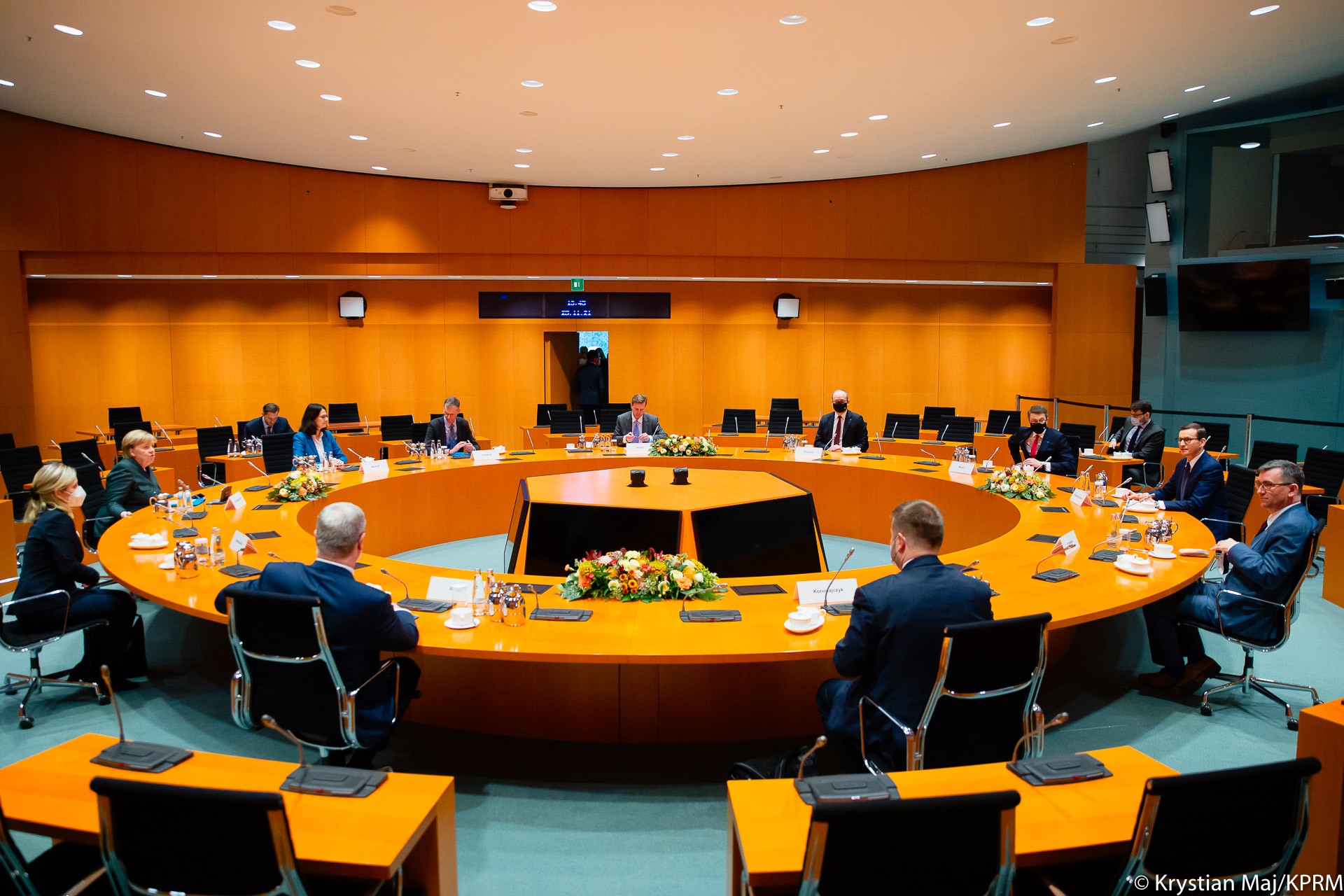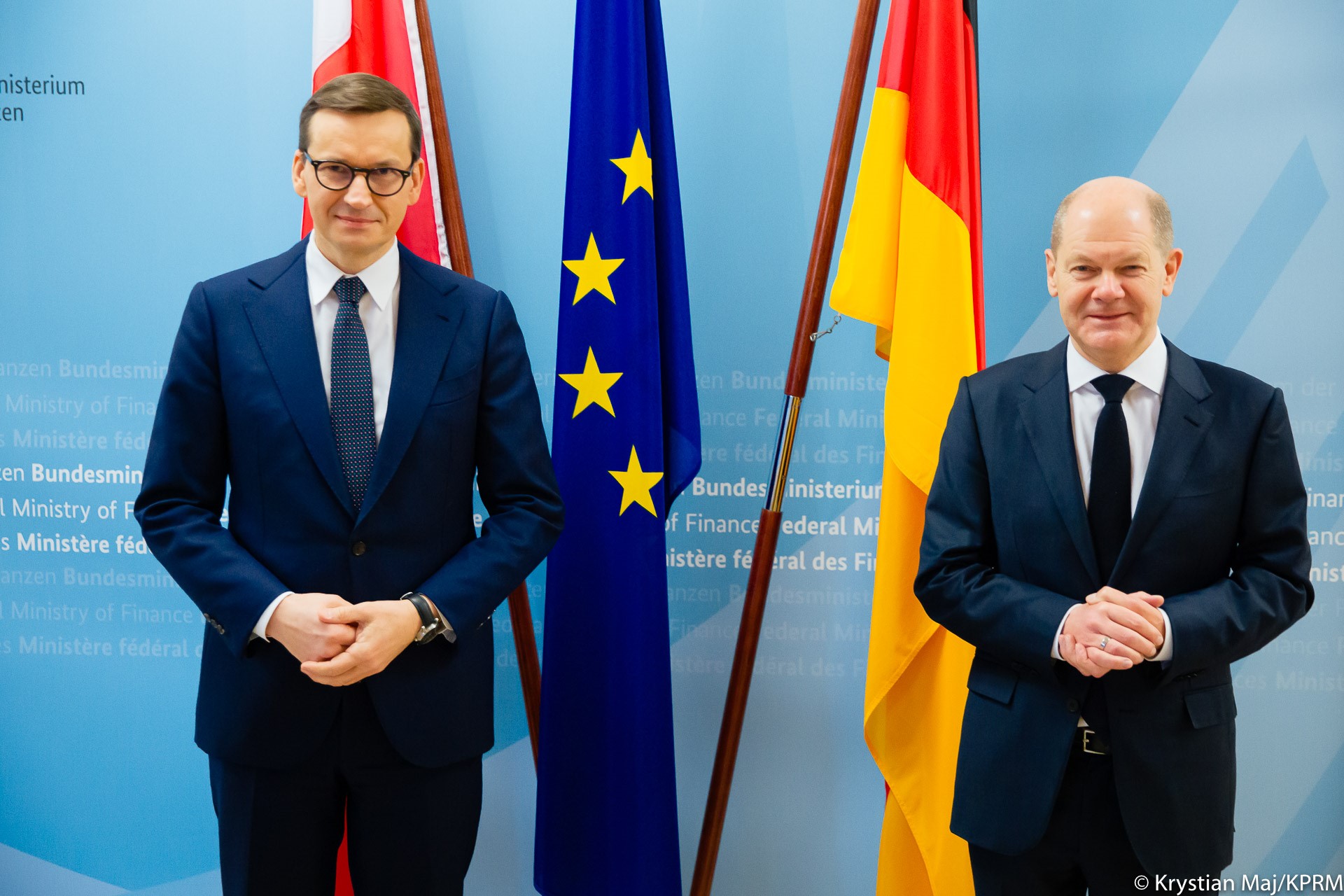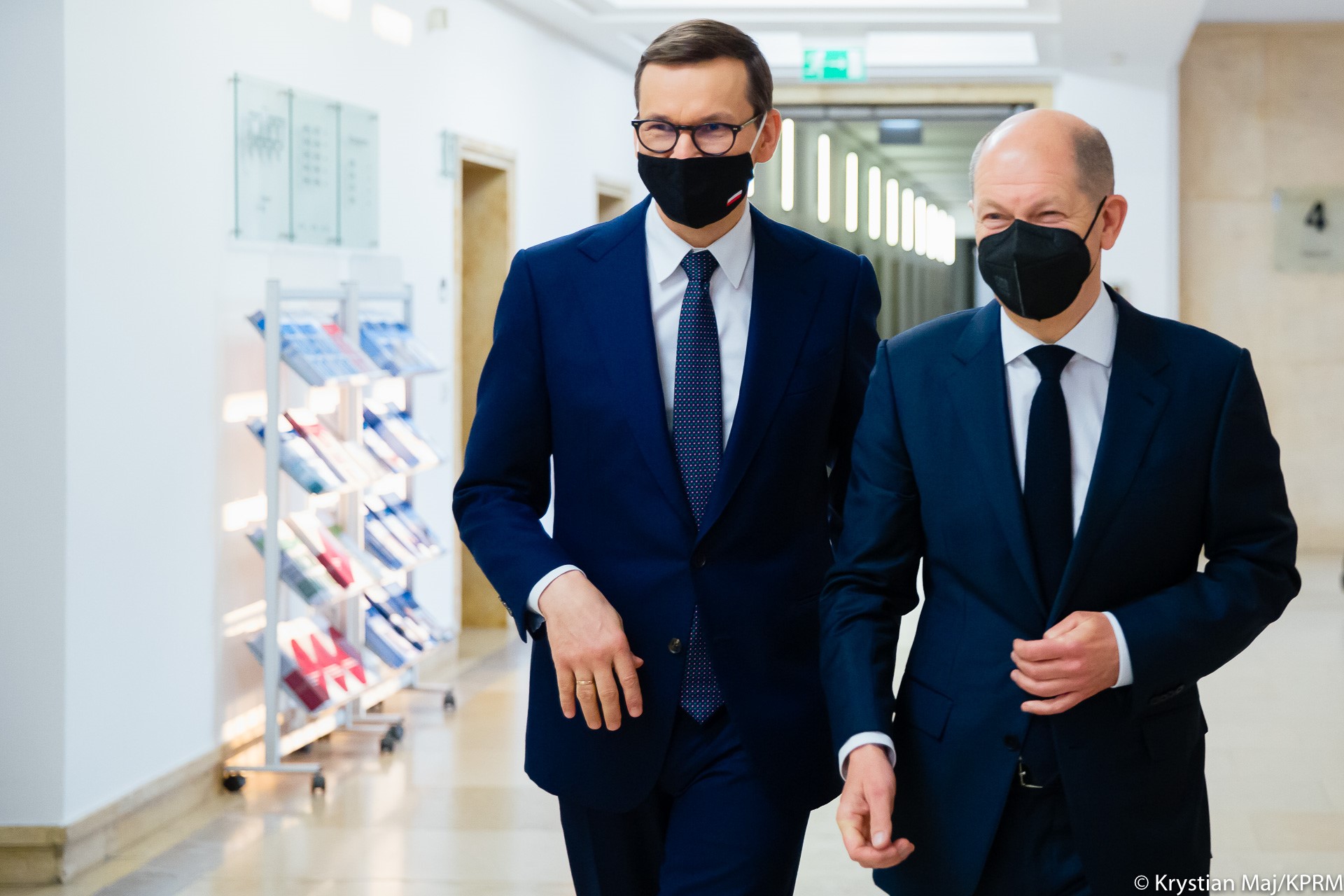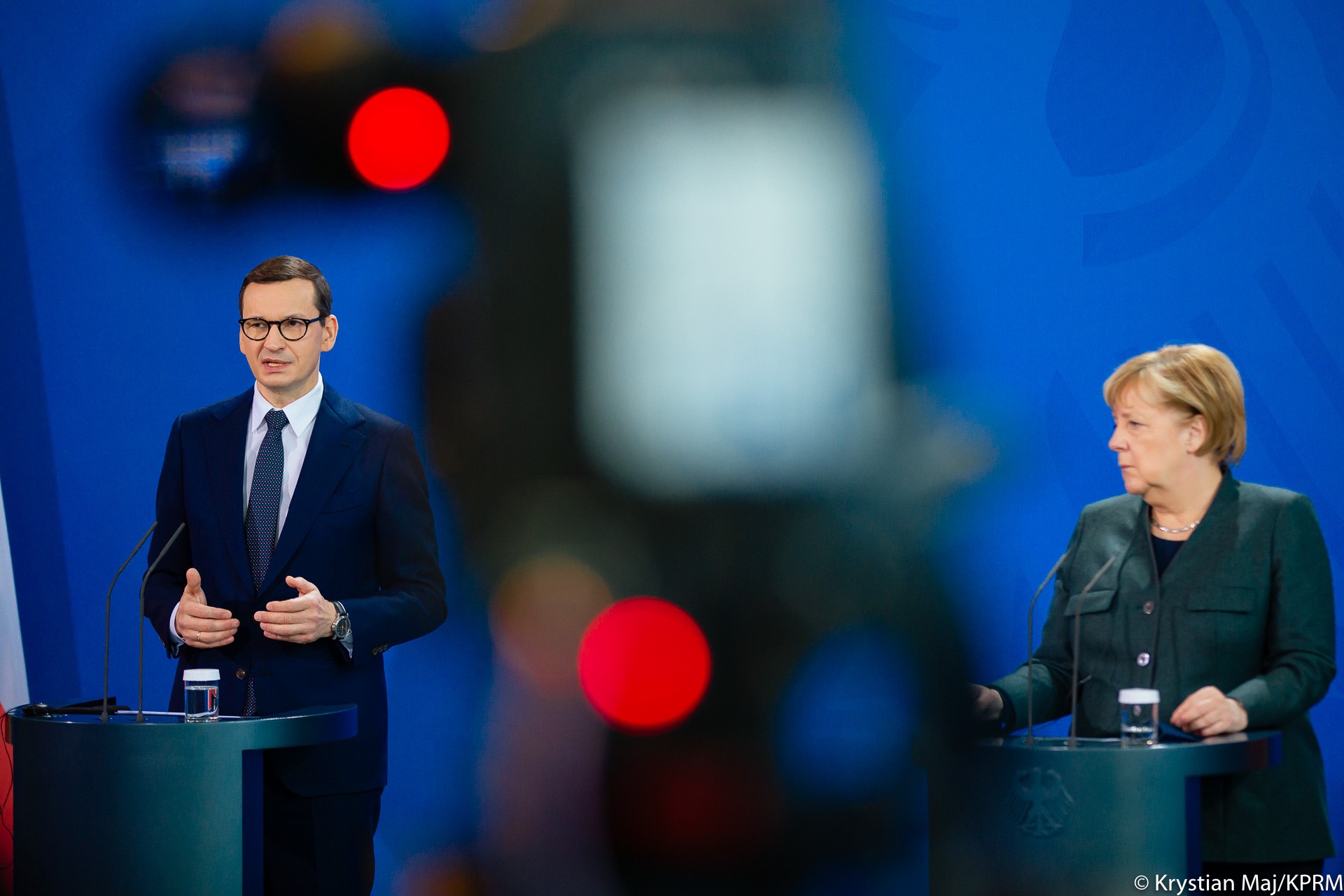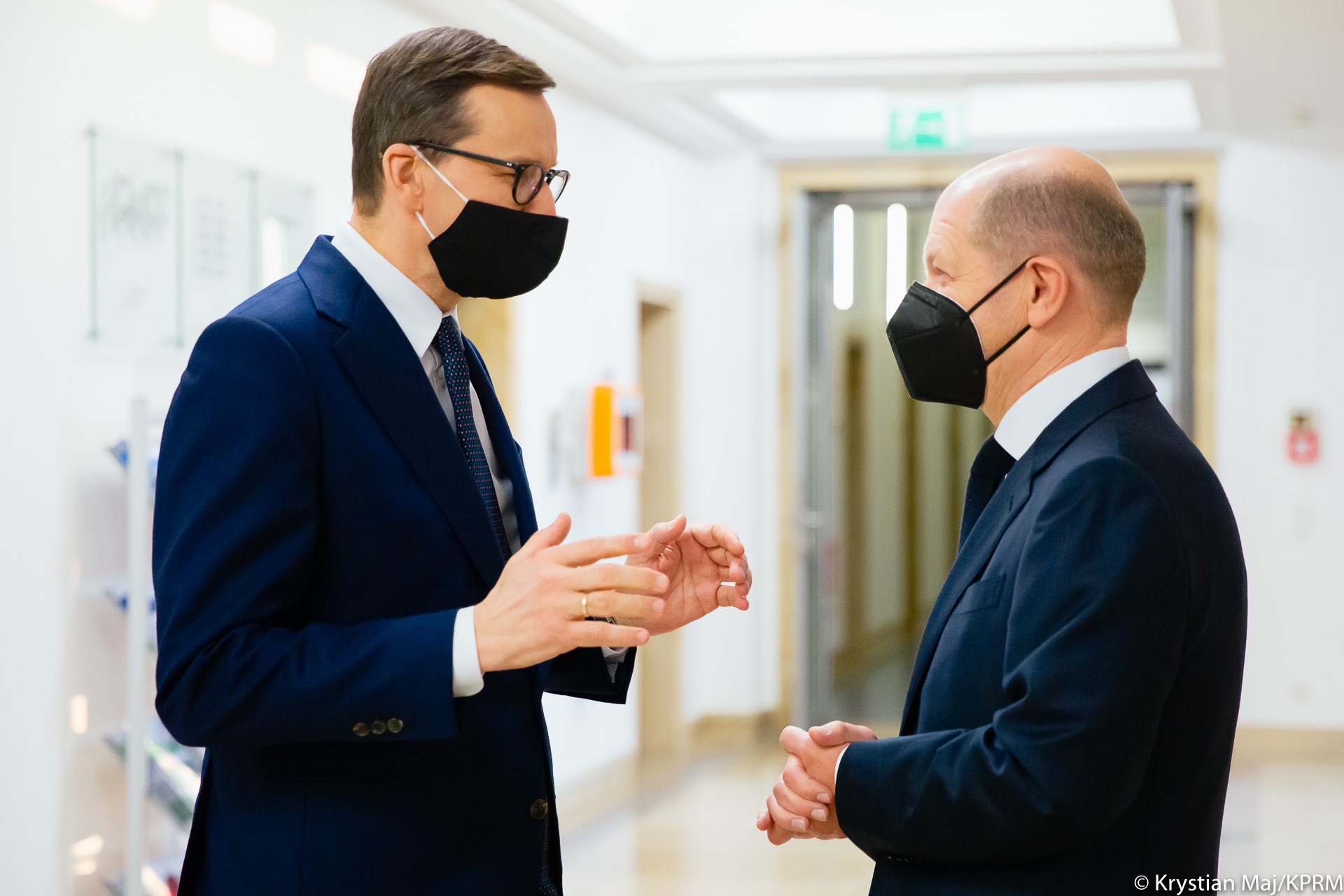European Union solidarity is crucial, says Prime Minister Morawiecki after meeting with Chancellor Merkel
25.11.2021
On Thursday, the head of the Polish government met with the current German Chancellor Angela Merkel. During his visit to Berlin, PM Morawiecki also met with Olaf Scholz – the leader of the Social Democratic Party of Germany (SPD) who is also set to become Germany’s new Chancellor. This was yet another in a series of meetings with European leaders aimed at coordinating the response of EU states and NATO members to the hybrid attack launched by Belarus. As of today, the eastern border of the European Union is affected by a migration crisis caused by Alexander Lukashenko’s regime. The weapons of choice in this conflict are disinformation and migrants, with the latter being utilised as human shields as well. This is by far the largest attempt to destabilise the EU in the last 30 years. In addition to the situation unfolding on the eastern border of the EU, the leaders of Poland and Germany discussed the current increase in energy and gas prices across Europe.

Poland and Germany stand united in opposition to hybrid warfare on EU’s eastern border
Today's meeting between Prime Minister Mateusz Morawiecki and Chancellor Angela Merkel showed the solidarity of both countries in the face of the conflict caused by Eastern actors. PM Morawiecki underscored that Lukashenko’s regime is testing the European Union’s border using migrants. The Polish PM claims that the intentions behind it are clear – it is about destabilising the European Community. Furthermore, he assured everyone that Poland has stopped the wave of migrants who tried to cross the border illegally.
Other topics discussed during the visit included energy issues, which are of paramount importance in the current crisis, with both this and today’s geopolitical challenges constituting an inherent danger to the European order.
Today’s meeting was a continuation of Poland’s talks with its Western neighbours. Last week, prior to his visit to Berlin, PM Morawiecki discussed the situation on the Polish-Belarusian border in a phone call with Germany’s current Chancellor. Talks between the President of the Republic of Poland and the President of the Federal Republic of Germany were held at the same time.
Meeting with future Chancellor of Germany
To reinforce the ties between Poland and Germany, Prime Minister Morawiecki also met with Olaf Scholz – the leader of the Social Democratic Party of Germany (SPD) who is set to replace Angela Merkel as the next Chancellor of Germany. It was a major opportunity to discuss the further efforts aimed at building friendly relations between the two countries, especially as Chancellor Merkel’s term of office comes to an end. The head of the Polish government emphasized the need to continue these efforts due to the importance of relations between Poland and Germany.
Polish diplomatic offensive in full swing
With the actions of Aleksander Lukashenko’s regime having sparked an international crisis, today’s geopolitical situation is very serious and requires strong diplomatic efforts on the part of the Polish government. As such, Prime Minister Morawiecki continues his series of meetings with European leaders. The ongoing conflict is an attempt to breach the eastern border of both NATO and the European Union.
So far, Mr Morawiecki has met with the heads of Lithuanian, Latvian and Estonian governments, and then, at a meeting in Budapest, with prime ministers of Slovakia, Hungary and the Czech Republic. His further diplomatic actions included visits to Croatia, France and Slovenia. The head of the Polish government introduced the leaders of the host countries to the current situation on the Polish-Belarusian border and discussed the possible joint actions by the European Community.
Prime Minister Morawiecki also spoke with the prime ministers of Iraq and the Kurdistan Regional Government, including about migrants used by the Belarusian regime, while Poland’s Foreign Minister Zbigniew Rau consulted with his counterpart in Romania.
On 19 November, Prime Minister Morawiecki and US Director of National Intelligence Avril Haines agreed upon the necessary security cooperation relating to NATO’s eastern flank. The diplomatic actions taken by Poland to date have brought positive results. The number of migrants reaching Belarus by plane has recently decreased as well.
Current situation on Polish-Belarusian border – EU’s eastern boundary
Belarusian services have been directing migrants to proceed towards the Polish-Belarusian border since June. It is a part of a hybrid conflict and the continuing pressure put on the European Community. The intensifying attempts at breaching the EU’s eastern border are aimed at breaking the territorial integrity of all EU states. To find up-to-date information on the situation on the Polish-Belarusian border of the EU, please visit https://www.gov.pl/web/granica
